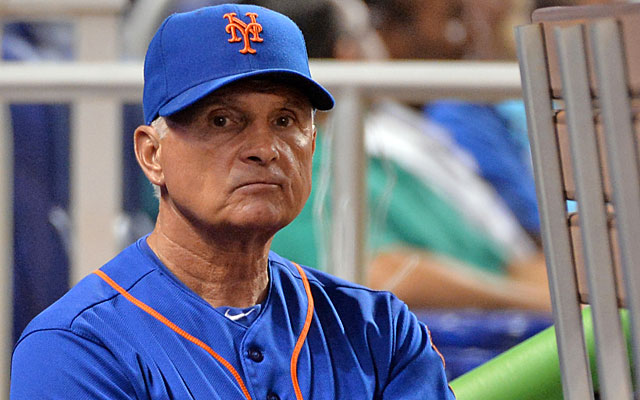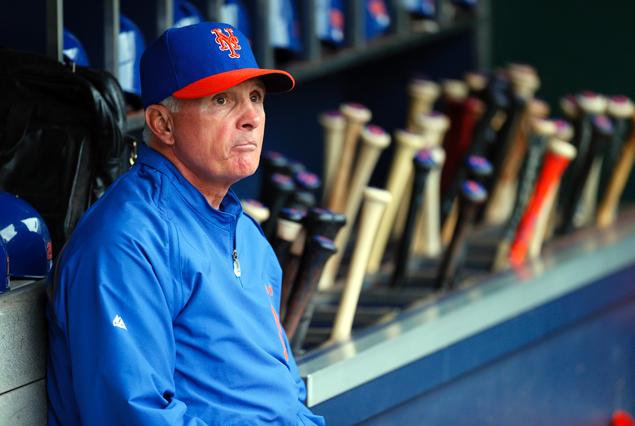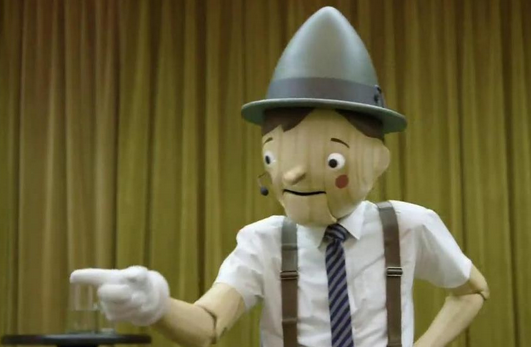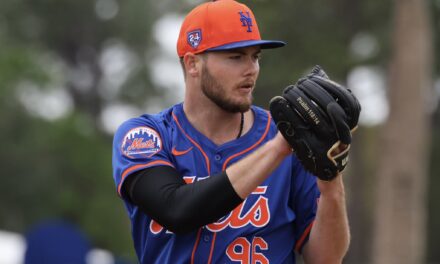
Pedagogy: the method and practice of teaching. From the Greek “ped” (child) and “agogi” (a place where you undergo a test or “trial by suffering” that you learn from – as in “agony”).
We all teach and we all learn throughout our lives. Some of us are better at it than others. There is a misconception in many circles that teaching (and learning) are exclusive to academic settings, and that once a person reaches a level of mastery they graduate to some sort of real world where they no longer stand to benefit from the acquisition of new information. This is of course absurd. I cannot think of a single occupation outside of perhaps the most banal and menial where you would not benefit from continued learning and growth. Those of us who open our minds continue to grow, while those us us who resist the novel and the new, do not.
There is a bias in baseball, one that implies that a player’s physical skills are all that matters. That once a player learns the essentials of the game, he is ready for the big leagues provided he has the physical talent to compete. And yet this is clearly not the case as nearly half of all high draft picks never make it to the show. You cannot in good conscience say that they didn’t have the tools because they are drafted almost entirely on the merits of their physical gifts. Clearly there is something else at work, clearly there is a psychological, cognitive, and perhaps even emotional aspect to the game that isn’t quite understood in a world of how high can you jump how fast is your bat and how hard can you throw? Consider for a moment what life is like for a kid far from home, cast into a world of “b” list cities, vending machine fare, crummy hotels, and endless grueling bus rides. It’s not for everyone.
A great mystery of Major League Baseball is why the jump to the majors is so difficult for so many. Is it the level of skill? The increased speed and strength and agility required to compete against the best of the best? Or is it something else?
Many have argued that what makes Major League Baseball so difficult is the pressure of the big stage itself. The bright lights and the unforgiving lens of the media and the fans can make the mental aspect of the game overwhelming. In reality it is of course some combination of both, but fans of this great game have often wondered why some organizations, the Cardinals and Braves for instance (Minnesota and Oakland are up there also), seem to routinely produce more viable major league players?
Scouting certainly may have something to do with it, but how often have we seen two players with comparable physical gifts take different paths? One succeeds while the other ends up back in San Antonio working in the old man’s furniture shop. The fact of the matter is that the more time and money an organization invests in a prospect, the greater the chances that prospect will succeed. Mike Piazza was a 62nd round draft pick, but he had a godfather in the organization looking after his needs and he was of a mindset that allowed him to take batting practice for hours on end until his hands bled.
Player development may play a greater role than we think. The pedagogy of preparing young athletes for the rigors and challenges of major league baseball is no small undertaking. It takes a certain kind of person … patient, intelligent, creative, experienced, with impeccable communication skills. They need to be part teacher, part parent, part psychiatrist. Coaches in the minor leagues have a uniquely challenging job. You have to believe that organizations that devote exceptional resources to their player development programs do a better job of producing major league players, and this does in fact appear to be true. The Braves for instance actually employ a mental skills coach who conducts psychological evaluations of potential draft selections for the Scouting Department – his name is Geoff Miller. Mr. Miller has even written a book on “Intangibles.”

But this story isn’t about intangibles or even player development. This story is about pedagogy, the teaching and learning involved in competitive baseball. Sandy Alderson came to us with his own set of beliefs and inclinations. His doctrine involves securing young controllable pitching assets, managing the strike-zone, clogging the basepaths — we’ve been over Mr. Alderson’s tenets ad nauseam … But one of his long held beliefs is that the coaching staff at the major league level shouldn’t be working on teaching a whole lot … they’re maybe tweaking a thing here or there and providing lots of incidental support but not much else.
For this reason Mr. Alderson has always taken a watered down approach to selecting his major league coaching staff … as if his manager is a token figurehead with little impact or influence who more or less goes through the motions of creating a lineup and making fairly cut and dry in-game moves that don’t require a lot of sophistication and don’t amount to much anyway. This goes against virtually everything that Alderson the man represents … from his military background to his experience in academia, he more than anyone should know that leadership and teaching are indispensable.
His approach is one of there only being one leader, one clear chain of command, and field managers who usurp this chain with their own ideas are dangerous because they may deviate from organizational tenets thereby interfering with their integrity and application … But If there’s one thing we know about our species it’s that we’re all different and the best teachers have always been those most tuned into those differences, able to tailor learning tasks to individual needs, able to work around a particular learner’s blocks and shortcomings by being creative, by thinking outside the box, by taking alternate perspectives.
A debate has raged in education in recent years as standardized testing and common core curricula have blanketed the profession making many tenured experienced teachers feel like mindless automatons forced to teach to faulty tests in a system that deprives them of the ingenuity, flexibility, and creativity that was once the driving force of that all important student-teacher bond … teachers know their students better than administrators, test developers, and politicians … managers and coaches know their players better than general managers (and owners).
It’s an odd and peculiar irony that the same micromanaging and standardization plaguing our educational system also presents as quite possibly the biggest impediment that our Mets are facing in their attempt to take the next step. Terry Collins is a veteran’s coach. He’s a guy who says the right things to the media, does what he’s told, and doesn’t make waves, but he is also very, very old. He’s not the motivator, the inspirational leader, the win at all costs find a way to succeed pioneering thinker that this very young team needs.
Terry Collins is not that teacher or coach that we all remember got in our faces and forced us to become better, to look at ourselves, to believe in ourselves and to push through doubt. He just isn’t. It’s not a knock on Collins … I’m sure he is a good person with deep knowledge of the game that might be perfectly suited to any number of other baseball scenarios, but he isn’t a teacher, he is more of a caretaker. This team needs someone who will get personal, who will find ways of helping players solve their issues, be they psychological, physical, or emotional.

A figurehead placeholder, a puppet if you will, cannot do that. No one wants Pinocchio for a boss – as the recent Geico “did you know” commercial points out. Pinocchio doesn’t make for a good inspirational speaker. Puppets aren’t very good listeners either, and if there’s one thing I’ve discovered over the years, it’s that you can’t teach if you can’t listen.
Sometimes refusing to admit you are wrong precludes learning. We’ve all had those moments in our lives when we’ve had to come to terms with our mistakes, and for this front office, they need to confront the possibility that they’ve been fabulously amiss in their approach to selecting a manager for their major league club.
Until that time when the Mets front office recognizes that you can only pull the strings so far and you need someone on the ground who is uniquely involved with his players and who can teach and motivate and solve complex problems, this team will be mired much more in the agony part of pedagogy, than the learning part.














